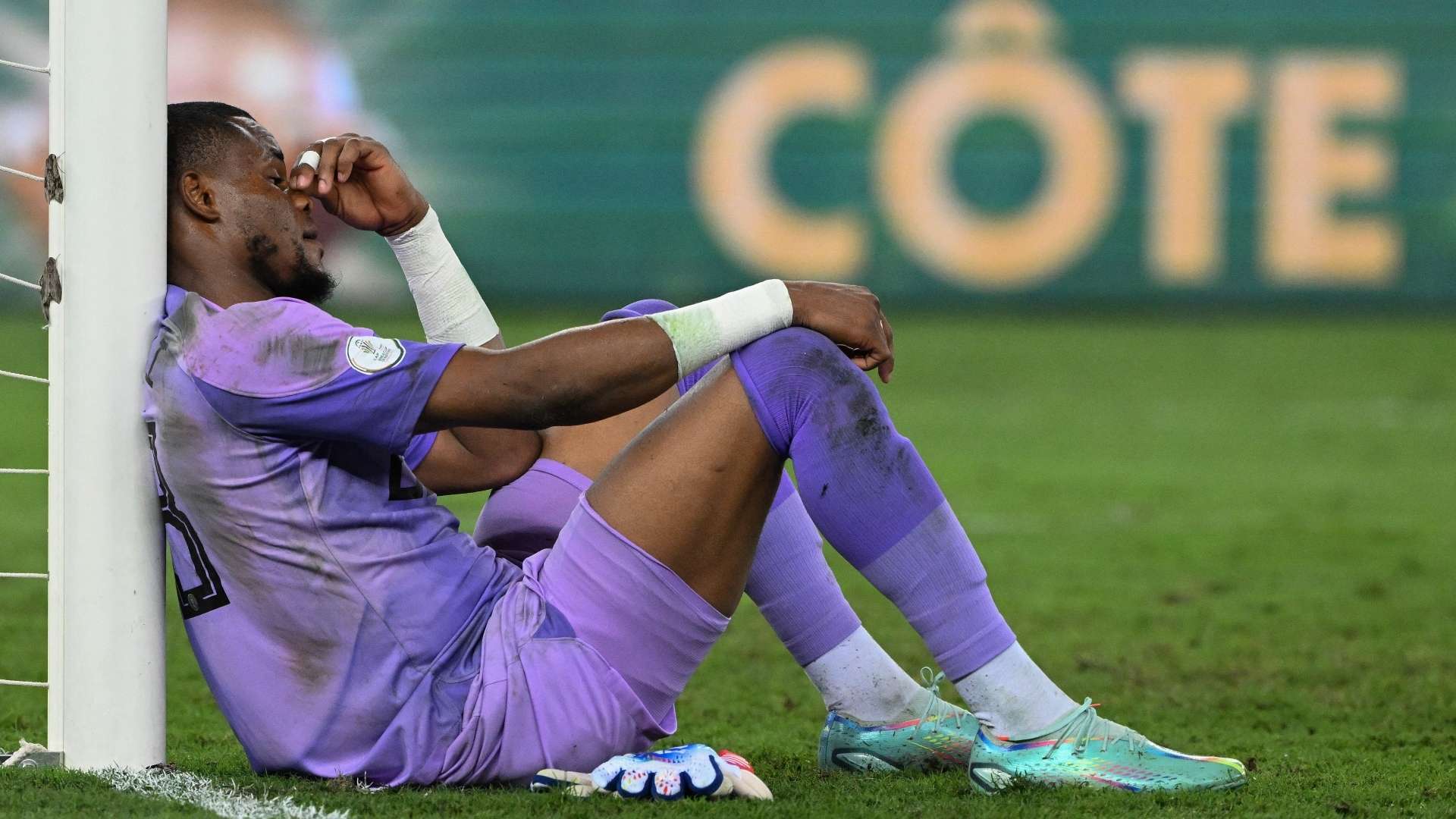Nigeria’s Super Eagles secured their qualification for the 2025 Africa Cup of Nations in Morocco, while team goalkeeper Stanley Nwabali received devastating news of his father’s passing. The contrasting emotions encapsulated a pivotal moment in Nigerian football, highlighting the delicate balance between professional achievement and personal loss.
The Super Eagles demonstrated their resilience in a challenging encounter at the Stade Felix Houphouet-Boigny on Thursday, fighting back from behind to secure a crucial 1-1 draw against Benin. The hosts had taken an early lead through Mohamed Tijani’s strike in the 16th minute, but Nigeria’s talismanic forward Victor Osimhen proved his worth once again, netting the equalizer with just nine minutes remaining on the clock.
This hard-fought point was enough to guarantee Nigeria’s place in the continental showpiece, set to be hosted by Morocco in 2025. The qualification holds special significance for the West African giants, who are still carrying the emotional weight of their runner-up finish in the 2023 AFCON tournament. Their determination to go one better next year is evident, though the path to glory remains challenging.
However, the jubilation of qualification was tempered by heartbreaking news from the Nigerian camp. Chippa United goalkeeper Stanley Nwabali, who has become an integral part of the Super Eagles setup, shared the devastating news of his father’s passing through his Instagram story. The emotional posts, featuring a simple “RIP Dad” followed by “Rest in heaven,” accompanied by poignant emojis, revealed the personal tragedy behind the professional triumph.
The timing of this loss adds an extra layer of poignancy to Nigeria’s achievement, highlighting the often-overlooked personal sacrifices and challenges faced by professional athletes. Nwabali, who has been making waves in the Premier Soccer League with Chippa United, is now expected to miss Nigeria’s final Group D match against Rwanda on compassionate grounds.
The qualification campaign has raised interesting questions about the future direction of Nigerian football, particularly regarding the leadership of the team. Augustine Eguavoen, currently serving as caretaker coach, has guided the team to this important milestone, but uncertainty remains about whether the Nigeria Football Federation will entrust him with the responsibility of leading the team into the 2025 tournament.
This successful qualification campaign positions Nigeria alongside other African footballing powerhouses like Bafana Bafana who have already secured their spots in Morocco. The Super Eagles’ achievement is particularly noteworthy given the competitive nature of African football and the increasing quality of teams across the continent.
Looking ahead to the 2025 AFCON, Nigeria’s ambitions are clear. Having come agonizingly close to continental glory in their previous campaign, the team’s determination to clinch the trophy is palpable. The qualification process has shown both the team’s resilience and their ability to secure results under pressure, traits that will be crucial in their pursuit of African football’s most prestigious prize.
The team’s final Group D match against Rwanda, while academic in terms of qualification, will provide an opportunity for the squad to maintain their momentum and potentially experiment with different tactical approaches. However, the absence of Nwabali, who has established himself as a key figure in the team, will be felt both emotionally and professionally.
This moment in Nigerian football serves as a reminder of the human element that underlies all sporting achievement. As the Super Eagles prepare for their AFCON campaign in Morocco, they do so carrying not just the hopes of a nation, but also the personal triumphs and tragedies that make up the fabric of their team. The qualification, while celebrated, stands as a testament to the complex interweaving of joy and sorrow that often characterizes the beautiful game.



